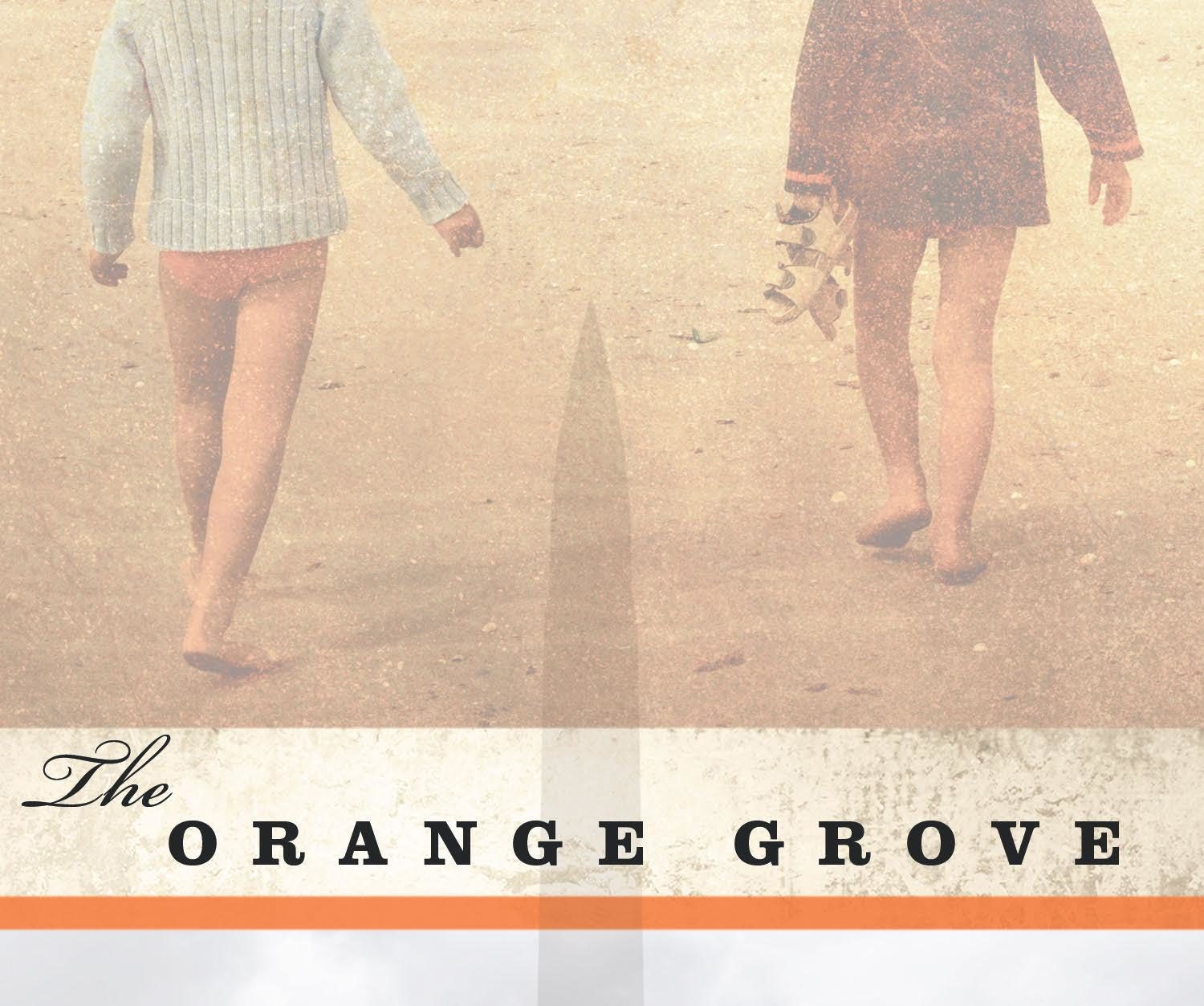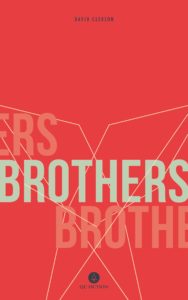
Review by Carly Rosalie Vandergriendt
The Orange Grove
Larry Tremblay
Sheila Fischman, translation
Biblioasis, 2015
Brothers
David Clerson
Katia Grubisic, translation
QC Fiction, 2016
Currently long-listed for the 2017 International Dublin Literary Award, Larry Tremblay’s The Orange Grove opens with an eloquent depiction of its protagonist’s twin brothers: “If Amed cried, Aziz cried too. If Aziz laughed, Amed laughed too.” (3) This slender novel, which is short enough to read in a single sitting, is exquisitely wrought—thanks in large part to veteran translator Sheila Fischman’s flawless rendering.
It opens with a heartbreaking parable set in an unidentified, war-ravaged Middle Eastern country. The reader quickly learns that something critical sets these nine-year-old identical twins apart: Aziz is sick, and will almost certainly die prematurely from an unnamed illness. Following the murders of the boys’ grandparents, their father, Zahed, receives a visit from three militants who impress upon him that “revenge is the name of [his] grief”. (18) The men leave a belt of ammunition, and Zahed is instructed to decide which of his sons to send across the mountain on a suicide bombing mission. Will he sacrifice Amed, who is healthy, or Aziz, who is dying? Once Zahed makes his decision—and without spoiling what that decision is—the boys’ mother intervenes, driving this first section of the book to its unsettling but compelling conclusion.
What follows in the book’s second and third sections is more speculative in nature, and grounded in a recognizable setting. Now twenty, the surviving brother lives in Montreal, where he studies theatre. When Mikaël, a teacher and director, assigns him a lead role in a production about the brutality of war, he refuses to participate, and eventually discloses the horror of his past to the man. The section’s thematic arc arises in the form of a question Mikaël, who has never experienced war, asks of himself: “Why should he not have the right, as an artist, to talk about war?” (109) Though the latter half of the book does not carry the life-and-death urgency of the book’s first half, its question is both important and pertinent.
Tremblay’s answer doesn’t satisfy however. Mikaël presses the brother to participate in the play. When he declares, sarcastically, to the brother, “I dared to write a play about war despite complete ignorance of what it involves, of what it provokes. What business did I have doing that?” (145) and the brother apologizes for hurting Mikaël’s feelings, the exchange felt backwards. Though Mikaël recognizes his play as “pretentious and vain” (146) compared to the brother’s lived experience, he seems to lack compassion and sensitivity. There is perhaps no satisfying answer to the question posed, but recent discussions on cultural appropriation have proven more illuminating—Yassmin Abdel-Magied’s response to Lionel Shriver’s sombrero speech in The Guardian, for instance, or Alicia Elliot’s well-articulated CBC article on why “Non-indigenous support for Joseph Boyden should set off alarm bells.” Nevertheless, Tremblay’s two-sided tale is nothing if not expertly crafted and thought-provoking—a book that readers will not soon forget.
 On a superficial level, David Clerson’s Brothers bears a number of similarities to The Orange Grove. It is also a quick read, consumable in the span of several hours. It might be described as a myth or a fable—the slightly more fantastical cousin of a parable. Its harsh coastal setting is never named. As the title suggests, it also features a pair of brothers, and though they remain nameless, like Aziz and Amed they are each other’s sole companions until forces beyond their control lead to the death of one brother. In both cases, the surviving brother is afflicted by grief and guilt.
On a superficial level, David Clerson’s Brothers bears a number of similarities to The Orange Grove. It is also a quick read, consumable in the span of several hours. It might be described as a myth or a fable—the slightly more fantastical cousin of a parable. Its harsh coastal setting is never named. As the title suggests, it also features a pair of brothers, and though they remain nameless, like Aziz and Amed they are each other’s sole companions until forces beyond their control lead to the death of one brother. In both cases, the surviving brother is afflicted by grief and guilt.
Brothers, too, could be held up as proof that translations are not lesser distillations of an original work, but art in their own right. Translator Katia Grubisic is also an acclaimed poet, and Brothers’ musicality is a testament to her talent. The story unfolds in prose that is breathless and dreamy, without forsaking vivid and specific imagery. An example: “The sea had offered up…all kinds of marvels. The fish they caught off an old pier barnacled in seaweed and desiccated snails sometimes looked peculiar, with bulging eyes, unusually bright colours, or surprisingly spherical bodies. Waves, tides, and storms also left things behind, the uses of which they could only guess.” (25)
But where The Orange Grove is a succinct work that doesn’t stray from the realm of the possible, Brothers is expansive and imaginative, with surreal elements. The brothers spend their days exploring the salt marsh, fields, and hills surrounding the shack where they live with their increasingly feeble mother, who “spoke to them as if they weren’t there…”. (47) Their limited world is bolstered by the legends their mother repeats, including how she fashioned the younger brother from the flesh of the older brother’s arm, leaving them both disfigured. Mention of their “dog of a father” (13)—their father is quite literally a dog—leave the brothers with a feeling that is “sublime and troubling, inexplicable, a love shaped by a taste for risk, by the temptation of forbidden things.” (22) They understand instinctively that when the timing is right, they will leave to search for him in “the waters from which he had emerged.” (22)
In Brothers, the ocean is an unknowable and mythical entity, a character in itself. The younger brother’s repeated proclamation that “the sea is the future” (33) is eerily prophetic and apt in an era of rising water levels. The ocean drives the narrative, first offering up a monster’s eye that the brothers interpret as a sign of their father, and later offering up a drowned dog, which spurs them to fashion a vessel and set out in search of their canine patriarch. In a symbolic act, the elder son wears the pelt of the dead dog like a cape. The boys set sail with calamitous results, leaving one of the brothers to come of age alone in a dark, strange, violent, and cruel world. Though some readers are bound to see allusions and allegory in the lone brother’s journey, the dream-like quality of the plot makes it captivating without warranting further interpretation.
These two stories about brothers are wildly different. The Orange Grove asks what brothers, and indeed all humans, are capable of, while Clerson’s debut novel eschews reality, causing the reader to question what is truth and what is myth. Together, they announce an exciting future for Quebec fiction in translation.
Carly Rosalie Vandergriendt’s writing has appeared or is forthcoming in The Fiddlehead, Room, Matrix, Plenitude, The Malahat Review, Cosmonaut’s Avenue, and other lit mags. She holds an MFA from UBC’s opt-res program and lives in Montreal, where she is at work on her first novel. Visit her at www.carlyrosalie.com or follow her @carlyrosalie.